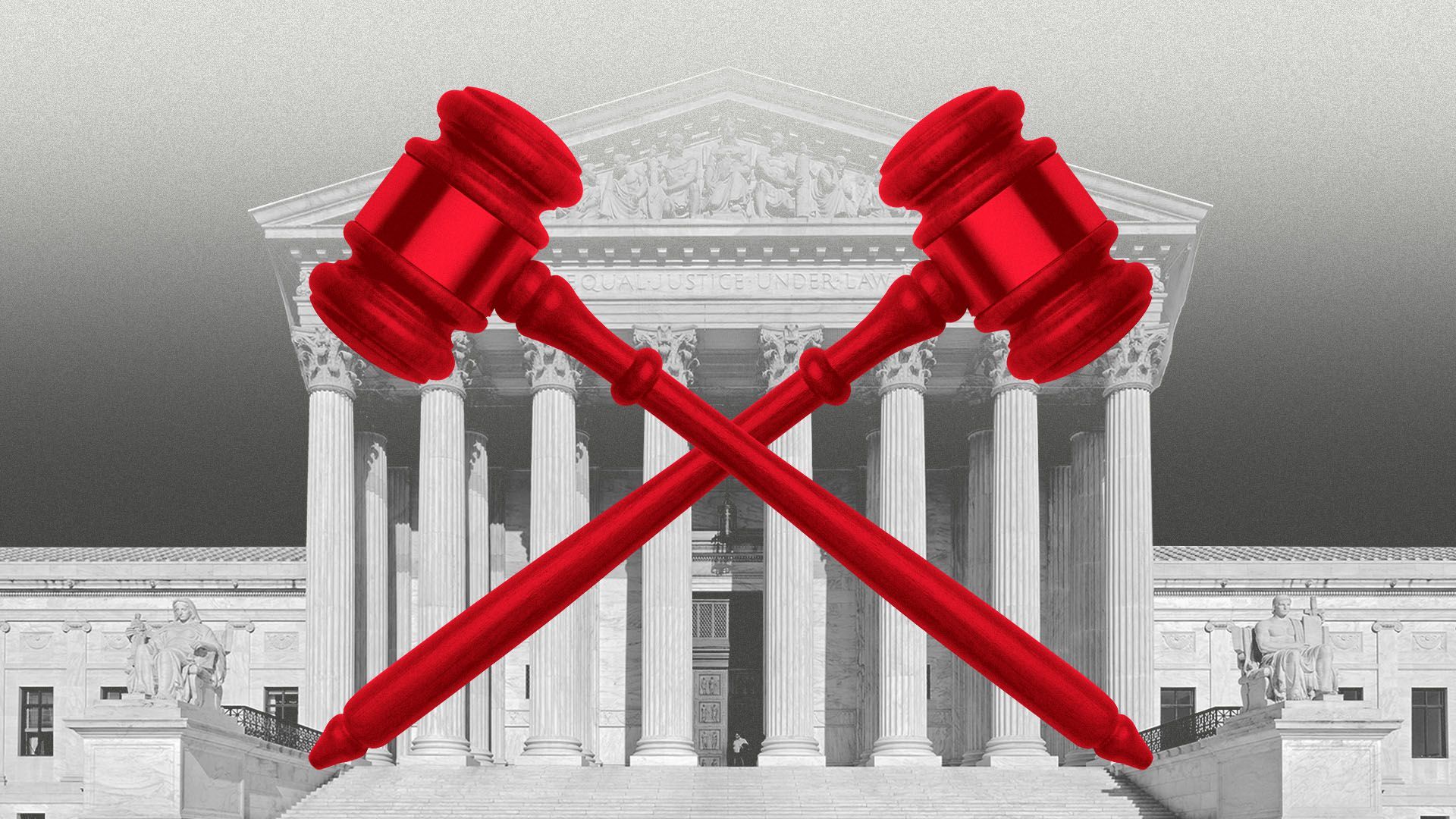Abortion is restricted in Utah again
Add Axios as your preferred source to
see more of our stories on Google.

Illustration: Sarah Grillo/Axios
One day after a state judge blocked Utah's new abortion ban pending legal disputes, another previously-passed restriction has gone into effect.
Driving the news: A 2019 law that banned elective abortions after 18 weeks of pregnancy has been enacted as a result of the U.S. Supreme Court's Friday ruling overturning Roe v. Wade, according to a statement by the Utah House of Representatives.
What's happening: A 2020 so-called trigger law banning almost all abortions had gone into effect Friday night, but it was placed on hold for 14 days pending a lawsuit by Planned Parenthood.
- Both that law and the 18-week restrictions from 2019 have very limited exceptions for some medical complications and pregnancies caused by rape.
- The 2019 law was not previously enacted because it banned abortions earlier in pregnancy than was allowed under Roe v. Wade.
Context: Judge Andrew Stone on Monday granted a temporary restraining order that prevents the 2020 ban from taking effect because patients would be "irreparably harmed" if they were denied abortions while the ban's legality is in question.
- Planned Parenthood wrote that nearly 70 abortions were already scheduled for the days after Utah's ban went into effect.
- Stone said that Planned Parenthood "raised serious constitutional issues" regarding the ban.
What's next: A judge will hear from Planned Parenthood and state attorneys on July 11 to decide whether to continue the restraining order, until the 2020 law is found to comply with the state constitution
